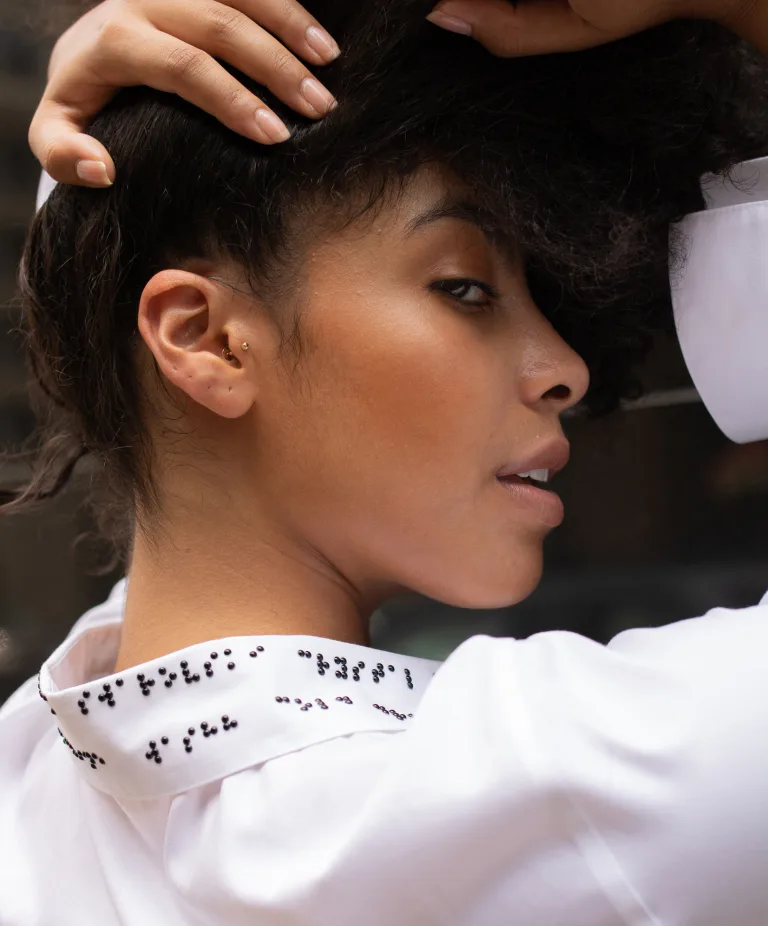The first-ever clothing collection designed for blind and visually impaired consumers has been launched by a Kenyan fashion company. By using Braille, the clothing in this new collection allows wearers to touch and explore the garment’s physical features.
Angela Wanjiku is renowned for her inclusive fashion sense and founded the company. The absence of clothing options for people with visual impairments was a source that Wanjiku, who has always been fascinated by fashion, pointed out. With the goal of filling this void, she developed a range of clothing that empowers visually impaired individuals to select their own attire with ease, confidence, and independence. Braille descriptions are printed on the fabric of the garments, enabling blind wearers to identify the type, color, and other unique details of each item.
I’ve always believed that fashion should be a universal commodity, and this collection is an example of why. Our goal, as Wanjiku stated, is to provide blind people with the opportunity of choosing their own clothing, without any restrictions or restrictions. She pointed out that the use of Braille enhances the functionality and style of clothing while still maintaining aesthetic appeal.
The visually impaired community in Kenya has expressed their approval of this fashion line. During the launch event, Moses Ndungu and other visually impaired Kenyans expressed their gratitude to God. The organization is accepting of these efforts. The collection was not only practical but also empowering, as he mentioned that a visually impaired person often has to depend on others for their clothing choices. This innovation changes that. According to Ndungu, the presence of Braille on his clothes has made life easier for him as he can now shop and dress independently.
Inclusion and accessibility are key factors in the creation of the Braille clothing line, not just fashion. Wanjiku’s initiative is a manifestation of the growing understanding within the fashion industry that accessibility is essential for building an inclusive community. By adopting this fashion trend, individuals with visual impairments can have the freedom to dress and express themselves as much as those who are able-bodied.
Despite being widely recognized as an area that celebrates individuality and creativity, fashion has been marginalized for many visually impaired individuals. Wanjiku is taking steps to close that gap. The company is not only making fashion accessible through Braille as a key component of its design, but also challenging other designers and brands to consider the needs of all consumers regardless of their abilities.
With the launch, Wanjiku’s company hopes to inspire more designers and brands alike to create fashion collections that are accessible to people with disabilities. The realization that accessibility is a crucial aspect of the economy and society can be attained by such innovations, which are being used to improve the lives of many who have been neglected for generations.
The success of this Braille-inspired clothing line is a testament to the importance of inclusiveness in the fashion industry, not only for Kenya but also for the rest of the world. With these developments, the fashion industry is becoming more inclusive, allowing individuals of all abilities to participate and feel included.
BY – NIKITA



